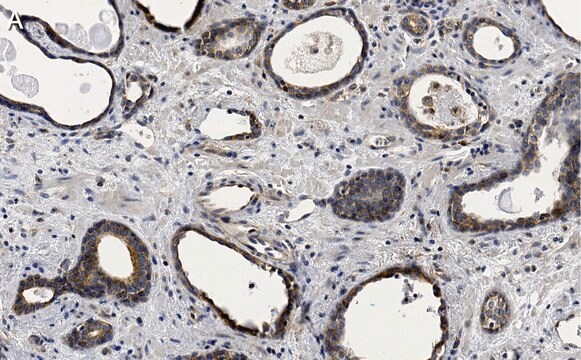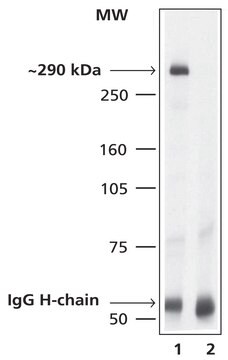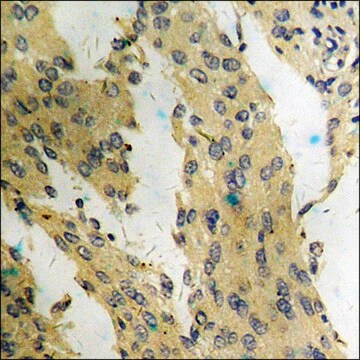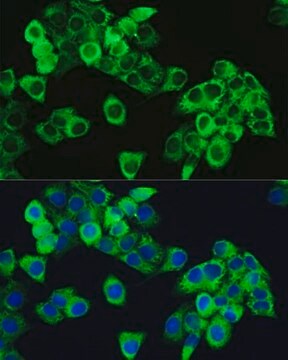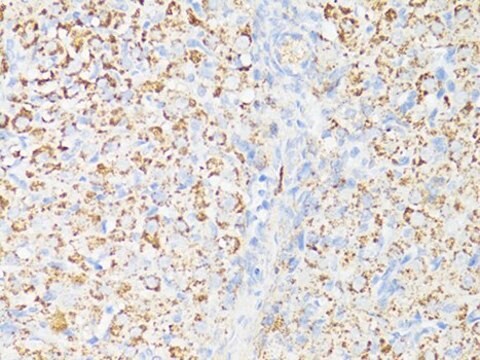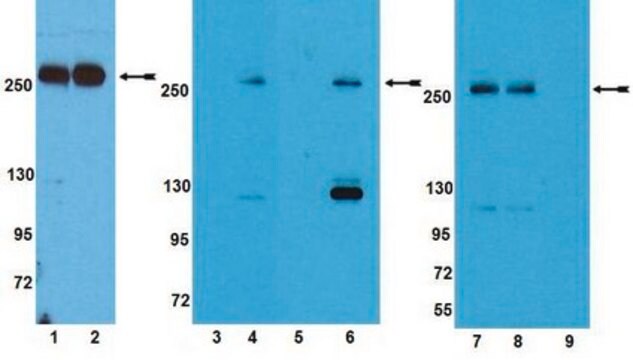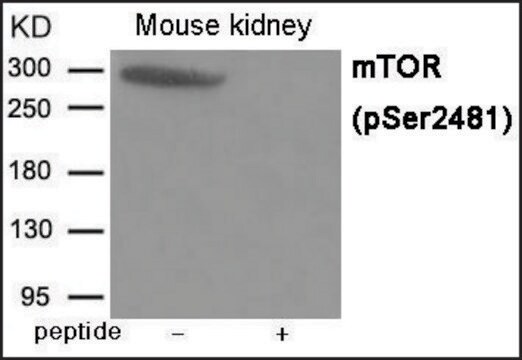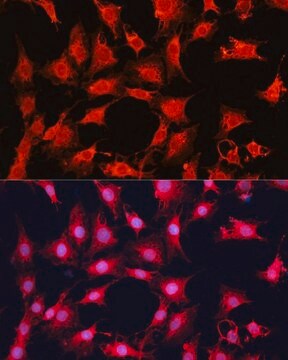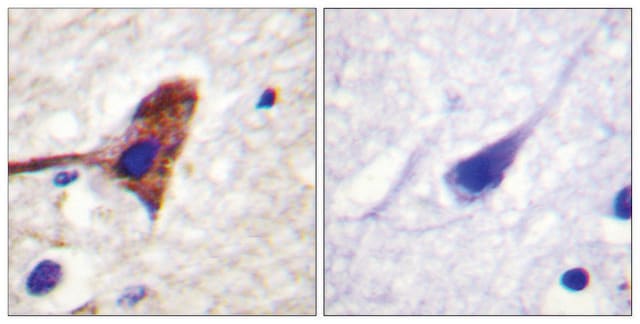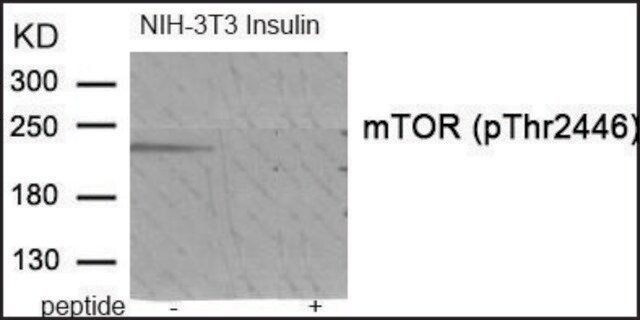09-213
Anti-phospho-mTOR (Ser2448) Antibody
Upstate®, from rabbit
Synonym(s):
FRAP1, FRAP, FRAP2, RAFT1, RAPT1, FK506 binding protein 12-rapamycin associated protein 1
About This Item
Recommended Products
biological source
rabbit
Quality Level
antibody form
affinity purified immunoglobulin
antibody product type
primary antibodies
clone
polyclonal
purified by
affinity chromatography
species reactivity
human
packaging
antibody small pack of 25 μg
manufacturer/tradename
Upstate®
technique(s)
western blot: suitable
NCBI accession no.
UniProt accession no.
shipped in
ambient
target post-translational modification
phosphorylation (pSer2448)
Gene Information
human ... MTOR(2475)
General description
Specificity
Immunogen
Application
PI3K, Akt, & mTOR Signaling
Glucose/Glycogen Metabolism
Insulin/Energy Signaling
Adhesion (CAMs)
Quality
Western Blot Analysis:
This antibody detected mTOR phosphorylated on Ser2448 in EGF-treated and untreated A431 cell lysates.
Target description
An uncharacterized band may be obsereved at ~59 kDa
Physical form
Analysis Note
EGF-treated and untreated A431 cell lysate.
Other Notes
Legal Information
Not finding the right product?
Try our Product Selector Tool.
recommended
Certificates of Analysis (COA)
Search for Certificates of Analysis (COA) by entering the products Lot/Batch Number. Lot and Batch Numbers can be found on a product’s label following the words ‘Lot’ or ‘Batch’.
Already Own This Product?
Find documentation for the products that you have recently purchased in the Document Library.
Our team of scientists has experience in all areas of research including Life Science, Material Science, Chemical Synthesis, Chromatography, Analytical and many others.
Contact Technical Service